Aga Khan IV, spiritual leader of Ismaili community, dies at 88
Prince Aga Khan IV was the 49th hereditary imam of the Ismaili Muslims
Reuters
News Agency Partner
Reuters is a leading source of news and information, delivering fact-based reporting and expert analysis on international events and trends.
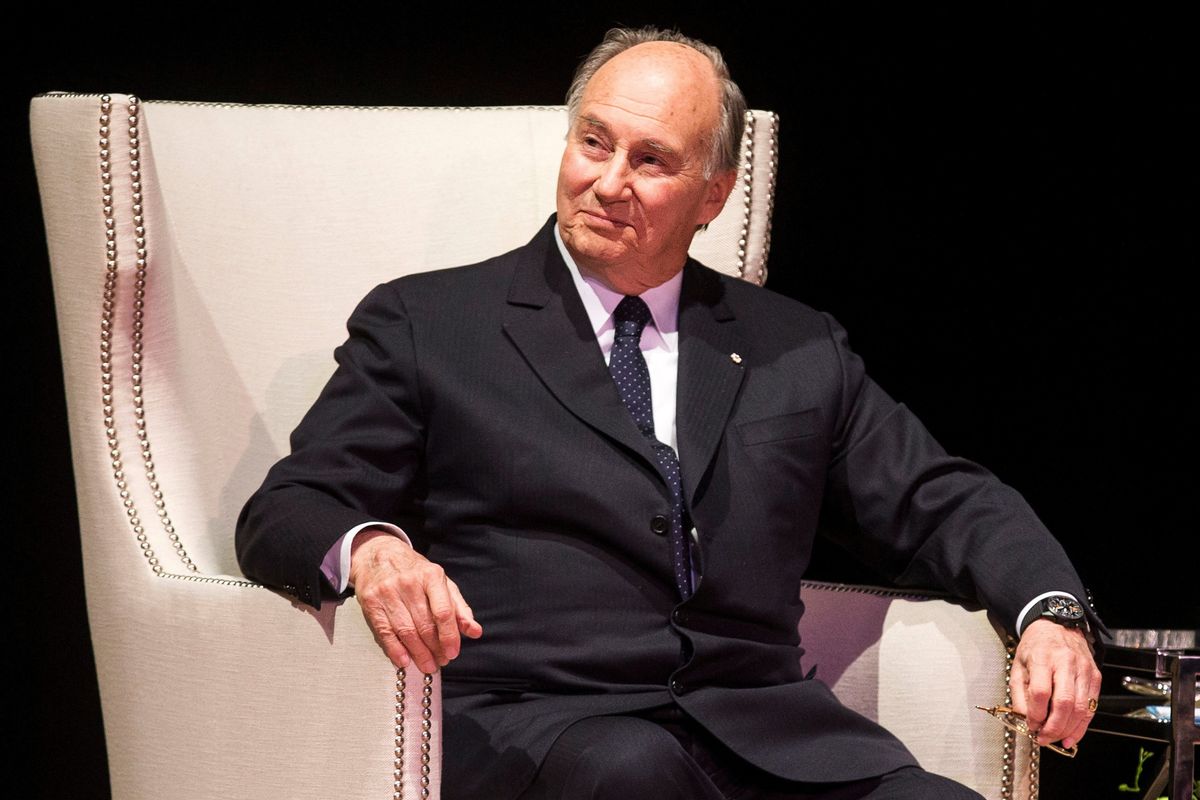
The Aga Khan, spiritual leader of Ismaili Muslims, looks on during a speaking event at Massey Hall in Toronto, February 28, 2014.
Reuters
Prince Aga Khan IV was known for his international development efforts
His wealth came from family inheritance, horse breeding, and investments
He founded the Aga Khan Development Network in 1967
Prince Karim Al-Husseini, Aga Khan IV, the spiritual leader of the global Ismaili community and renowned for his international development efforts, has passed away in Lisbon at 88, according to the Aga Khan Development Network on X.
The announcement of his designated successor will follow, the network said.
Spiritual leadership and legacy
As the 49th hereditary imam or spiritual leader of the world’s 15 million Ismaili Muslims, Aga Khan IV held a significant role in providing divine guidance to the community.
His appointment as imam came in 1957 at the age of 20, following the death of his grandfather, Sir Sultan Mahomed Shah Aga Khan, who chose him as his successor over his own son, Prince Aly Khan.
The Aga Khan’s spiritual role spanned multiple regions, including Central Asia, the Middle East, South Asia, sub-Saharan Africa, Europe, and North America.
He was the fourth holder of the title, which dates back to the 1830s when it was originally granted by the emperor of Persia.
Born on December 13, 1936, in Geneva, he spent his early years in Nairobi, Kenya, before attending the exclusive Le Rosey School in Switzerland and later studying Islamic history at Harvard.
He was married twice, first in 1969 to former British model Sarah Croker Poole, with whom he had a daughter and two sons. The couple divorced in 1995.
In 1998 he married German-born Gabriele zu Leiningen, with whom he had a son. The couple divorced in 2014.
Development efforts and business ventures
The Aga Khan was a prominent advocate for development in some of the world’s poorest regions.
He established the Aga Khan Development Network (AKDN) in 1967, a group of international development agencies employing 80,000 people to build schools, hospitals, and provide electricity for millions in Africa and Asia.
In a rare 2007 interview with the New York Times, he emphasized the importance of poverty alleviation in combatting extremism.
"If you travel the developing world, you see poverty is the driver of tragic despair, and there is the possibility that any means out will be taken," he stated.
By assisting the poor through business, he argued, "we are developing protection against extremism."
Alongside his development work, the Aga Khan maintained private business interests, owning a pharmaceutical company, a bank, and a fishnet factory in Uganda.
"Few persons bridge so many divides — between the spiritual and the material; East and West; Muslim and Christian — as gracefully as he does," Vanity Fair wrote in its 2013 article.
The Aga Khan led a luxurious lifestyle, characterized by private jets, a $200 million super-yacht, and a private island in the Bahamas.
Estimates of his wealth ranged from $800 million to $13 billion, sourced from his family inheritance, horse breeding ventures, and investments in tourism and real estate.
Equesterian success
Prince Aga Khan became synonymous with success in the world of horse racing. Initially uncertain about continuing his family’s tradition in thoroughbred racing after his father's death in 1960, he soon found passion and success in the field.
After winning the French owners' championship in his first season he was hooked.
"I have come to love it," he said in a 2013 interview with Vanity Fair. "It’s so exciting, a constant challenge. Every time you sit down and breed you are playing a game of chess with nature."
His stables and riders, wearing his emerald-green silk livery, enjoyed great successes with horses like Sea the Stars, which won the Epsom Derby and the 2,000 Guineas; and Sinndar, which also won the Epsom Derby, the Irish Derby and the Prix de l'Arc de Triomphe in the same year, 2000.
But perhaps his most famous horse was Shergar, which won the Epsom Derby, the Irish Derby and the King George, before being kidnapped in February 1983 from Ireland's Ballymany stud farm.
A ransom demand was made, with the mafia, former Libyan leader Muammar Gaddafi and the IRA all suggested as suspects.
No money was paid, and no trace of the horse was ever found.
Condolences pour in
Condolences followed soon after Prince Aga Khan's death. UN Secretary General Antonio Gutteres said: “I am deeply saddened by the news that His Highness Prince Karim Al-Hussaini, Aga Khan IV, has passed away."
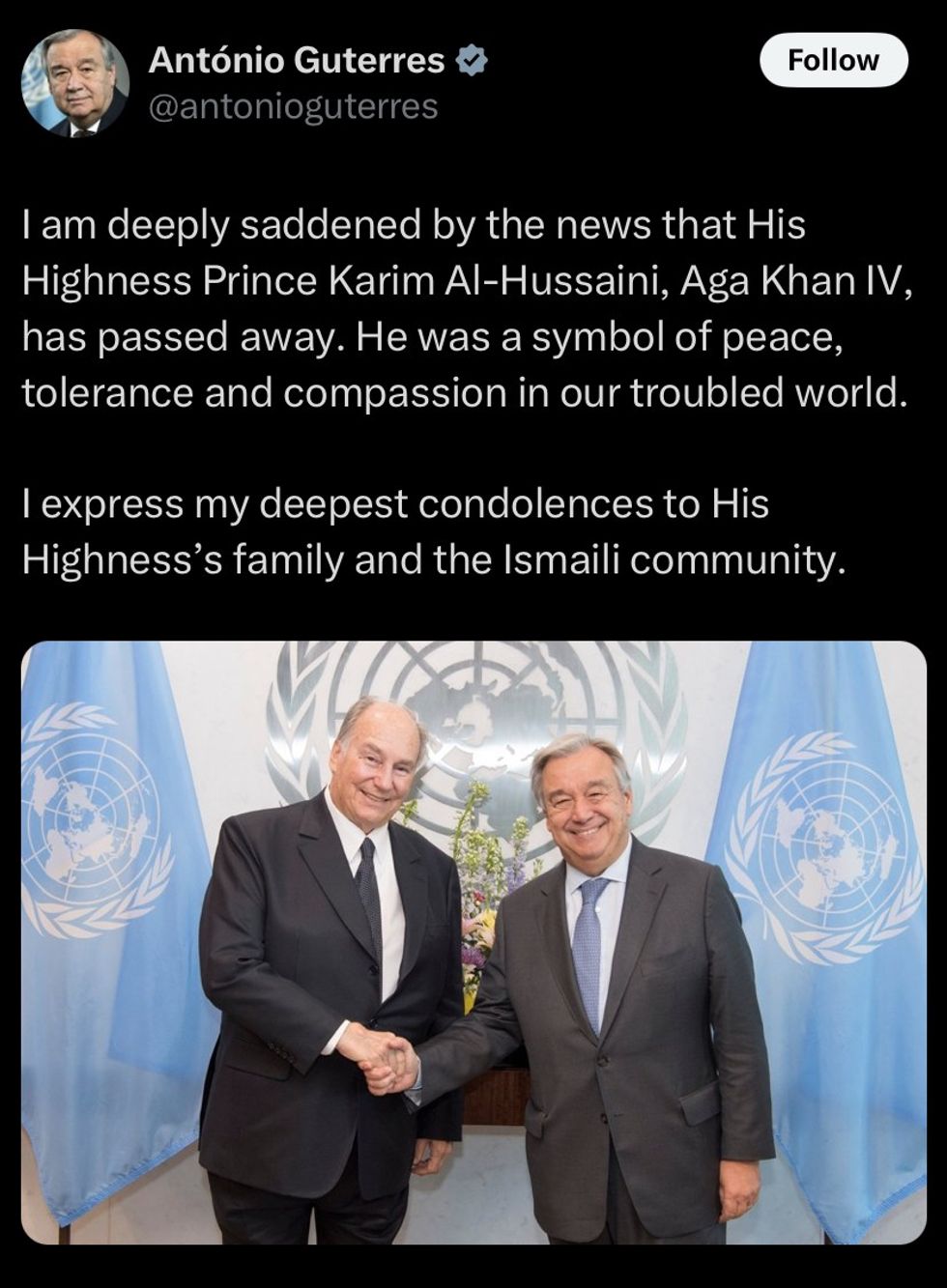
World leaders also chimed in. Prime Minister of Pakistan, Shehbaz Sharif highlighted Aga Khan's contributions that "transcended borders, bringing hope and progress to communities in need."
"Through his tireless efforts in poverty alleviation, healthcare, and gender equality, he championed the cause of the marginalized, leaving an indelible mark on countless lives", he further stated.
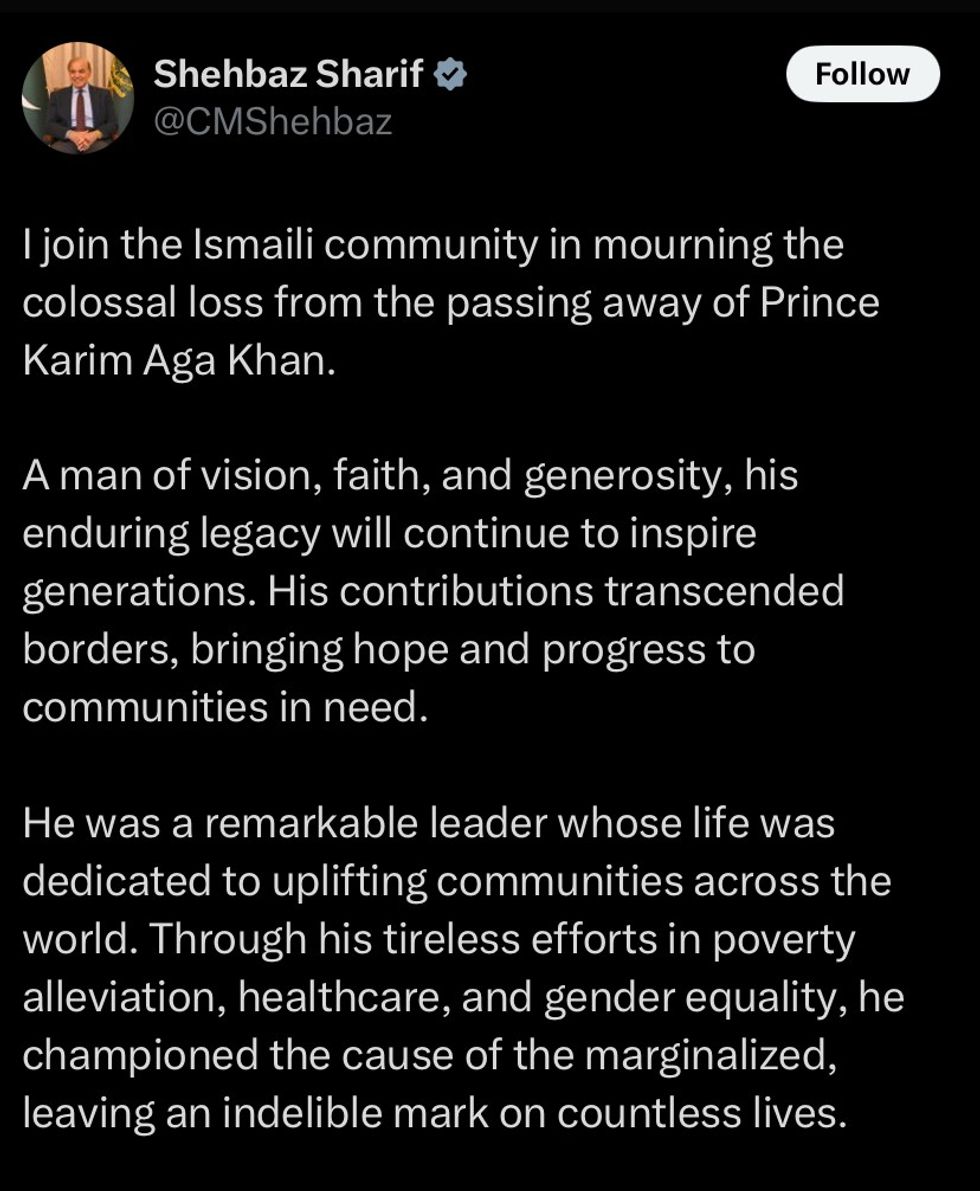
Canada's Prime Minister Justin Trudeau offered his condolences to a man he saw as "an extraordinary man of vision, faith, and generosity."
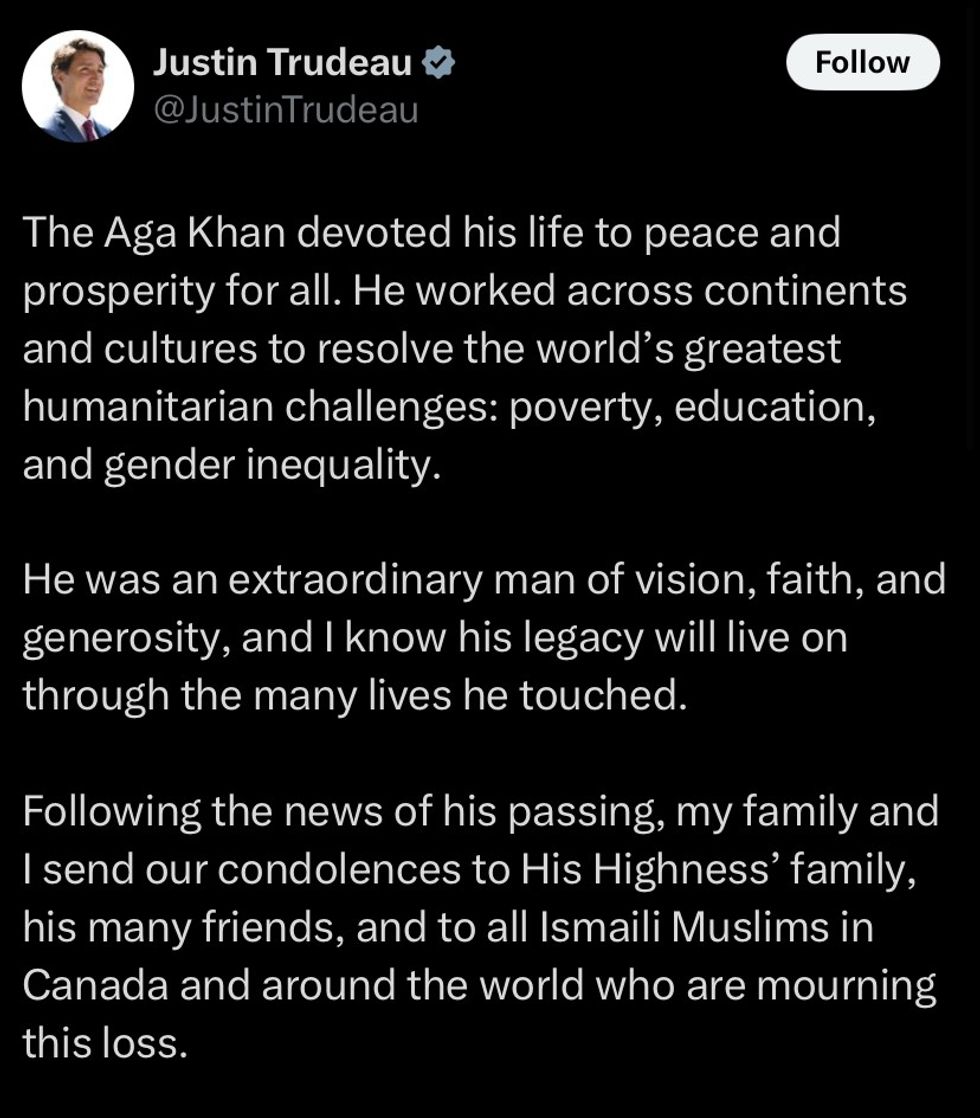
Activist and Nobel Laureate Malala Yousafzai also extended her "deepest condolences" to Aga Khan's family and loved ones.
"His legacy will continue to live on through the incredible work he led for education, health, and development around the world", Malala stated in a tweet on X.
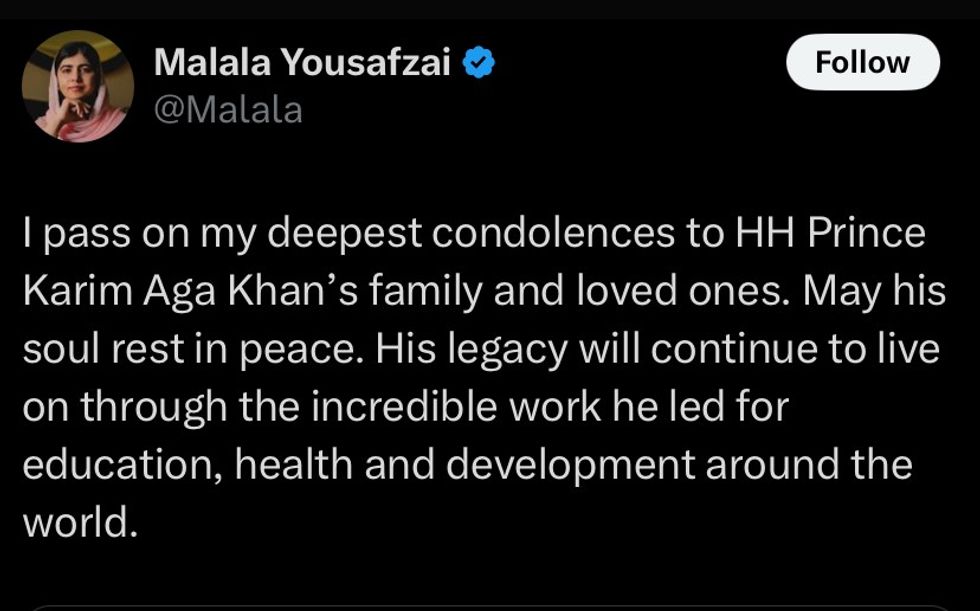





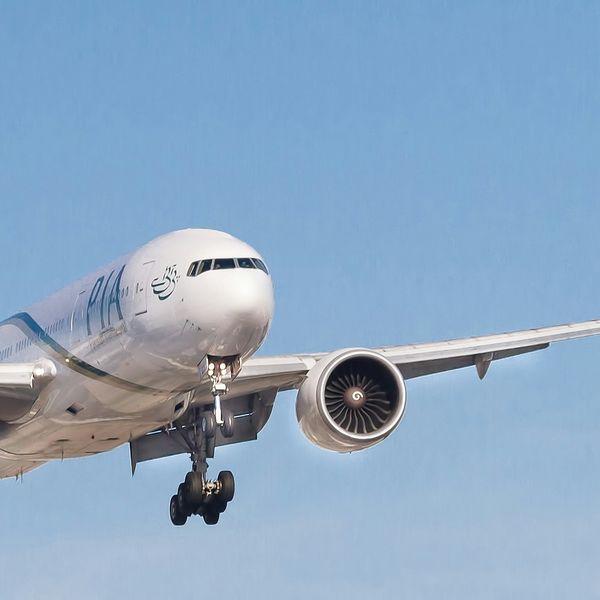

Comments
See what people are discussing